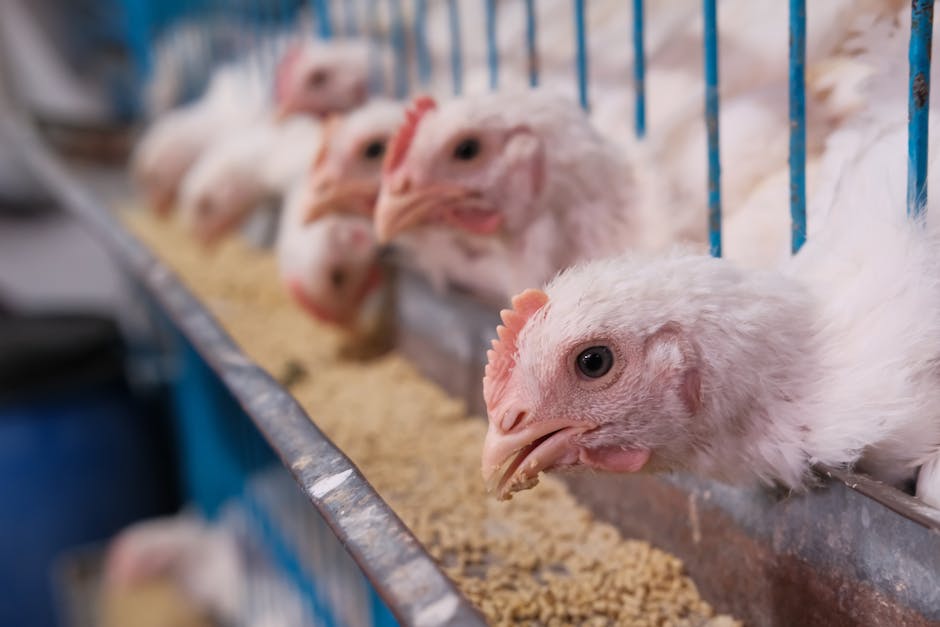The modern agricultural landscape is increasingly intertwined with ethical dilemmas. Livestock farming, a cornerstone of global food production, presents a complex web of considerations, pushing the boundaries of what constitutes acceptable treatment for animals, environmental sustainability, and socioeconomic equity. This article delves into the multifaceted ethical challenges inherent in this vital industry.
A Crucial Intersection: Animal Welfare and Production
A primary ethical concern revolves around the treatment of livestock. Modern intensive farming practices, while often optimized for efficiency and yield, frequently raise questions about the well-being of the animals themselves. Confined spaces, limited access to natural behaviours, and potentially stressful handling practices can significantly impact animal health and welfare. Issues like inadequate ventilation, overcrowding, and lack of access to pasture or appropriate enrichment affect the animals’ physical and psychological well-being. Ethical considerations demand a nuanced understanding of animal sentience, recognizing that these animals experience pain, fear, and distress, and that these experiences deserve careful consideration in farm management.
Beyond the immediate physical needs, the psychological welfare of livestock must be addressed. Animals are capable of experiencing stress, anxiety, and boredom, all of which can manifest in detrimental ways. A robust framework for animal welfare necessitates measures that reduce or mitigate these stresses. This may include optimizing husbandry practices, providing appropriate environmental enrichment, and carefully considering the management of handling procedures. A more nuanced approach to animal welfare demands a shift from merely meeting minimum standards to proactively improving the overall quality of life for these animals.
The Environmental Footprint: A Crucial Balancing Act
Livestock farming also carries a significant environmental impact. Greenhouse gas emissions, particularly methane from ruminant animals like cattle, contribute to climate change. Deforestation for grazing land and feed production further exacerbates these environmental pressures. Water pollution from manure runoff and the use of fertilizers also pose a threat to aquatic ecosystems and human health. This necessitates a crucial ethical discussion: can we continue producing the volume of meat and dairy products demanded globally while minimizing environmental damage?
Sustainable agricultural practices, integrating ecological principles into farming operations, are crucial. Adopting strategies such as rotational grazing, improved manure management systems, and the utilization of climate-smart feed practices can help mitigate the environmental impact of livestock production. This means prioritizing a more holistic approach to farming, one that values environmental integrity alongside economic gain.
Socioeconomic Considerations: Fair Practices and Fair Outcomes
Ethical considerations in livestock farming extend beyond the farm gate. Fair wages and working conditions for farm laborers, as well as just market prices for producers, are also crucial. Concerns about exploitation and labor abuses are often embedded within the complex global supply chains of livestock products. Ethical production also demands equitable access to resources and opportunities for marginalized communities involved in or dependent on the livestock industry.
Transparency and traceability in the supply chain can empower consumers to make informed choices. Understanding the origin of livestock products and the conditions under which they were raised promotes accountability and fosters responsible consumer behavior. This is essential for building trust and ensuring that the benefits of livestock farming are distributed fairly. Further, recognizing the role of small-scale, sustainable farming practices in providing livelihoods and fostering rural economies is crucial to building more ethical systems.
Technological Advancements: A Double-Edged Sword
Technological advancements in livestock farming, while offering the potential to enhance animal welfare and improve production efficiency, also present new ethical challenges. For instance, genetic modification techniques can impact animal welfare. Precision livestock farming, while potentially improving efficiency, raises concerns about data privacy and algorithmic bias. The use of novel technologies necessitates careful ethical assessment, considering their long-term consequences for animal well-being, the environment, and societal equity.
A Framework for Ethical Livestock Farming
A robust ethical framework for livestock farming needs to transcend simple compliance with regulations. This requires a multi-faceted approach encompassing animal welfare, environmental sustainability, and socioeconomic equity. This entails:
* Prioritizing animal welfare: Implementing rigorous standards that go beyond minimum requirements, ensuring animal comfort and freedom of movement.
* Embracing sustainability: Implementing environmentally friendly practices to reduce greenhouse gas emissions, conserve water resources, and protect biodiversity.
* Promoting fair labor practices: Ensuring fair wages, safe working conditions, and opportunities for farm workers.
* Enhancing transparency: Promoting open and accessible information on the origin and production methods of livestock products.
Conclusion
Ethical livestock farming is not a static ideal, but an ongoing journey towards a more responsible and sustainable food system. It requires a collaborative effort involving producers, consumers, policymakers, and researchers to address the interconnected challenges of animal welfare, environmental sustainability, and socioeconomic equity. By embracing ethical considerations at every stage of the production process, we can work towards a future where livestock farming contributes to both human well-being and the preservation of our planet. The path forward requires a continuous dialogue, critical reflection, and a commitment to upholding the moral values that underpin a truly sustainable and ethical approach to livestock production.






